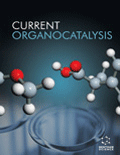
Current Organocatalysis
Scope & Guideline
Connecting Researchers in the World of Organocatalysis
Introduction
Aims and Scopes
- Organocatalytic Synthesis:
The journal publishes studies on the development, optimization, and application of organocatalysts in synthetic organic chemistry, highlighting novel catalytic reactions and methodologies. - Green Chemistry Approaches:
There is a strong emphasis on environmentally benign synthesis methods, including the use of biodegradable solvents, microwave-assisted reactions, and other sustainable practices. - Biocatalysis and Natural Catalysts:
Research on biocatalytic processes and the use of natural products as catalysts is a key area, showcasing the potential of enzymes and other biological catalysts in organic transformations. - Heterocyclic Compounds Synthesis:
The journal frequently features articles on the synthesis of heterocycles, which are crucial in medicinal chemistry, demonstrating various catalytic strategies for their formation. - Theoretical and Computational Studies:
Papers that integrate computational modeling with experimental work to predict reaction outcomes and understand mechanisms are an important aspect of the journal's contributions.
Trending and Emerging
- Sustainable and Eco-Friendly Catalysis:
The journal increasingly features research on sustainable methodologies, such as solvent-free reactions, and the use of renewable resources, aligning with global trends towards sustainability. - Multicomponent Reactions:
There is a growing interest in multicomponent reactions (MCRs), which offer efficient synthetic strategies with reduced steps and waste, showcasing their importance in organic synthesis. - Nanocatalysts and Hybrid Systems:
The emergence of nanotechnology in catalysis, with a focus on hybrid systems that combine organocatalysts with nanomaterials, is gaining attention for their enhanced catalytic properties. - Asymmetric Synthesis:
Research on asymmetric organocatalysis is on the rise, particularly in the synthesis of chiral compounds, reflecting the increasing demand for enantiomerically pure substances in pharmaceuticals. - Biocatalytic Innovations:
There is a notable increase in studies exploring biocatalysts and their applications, as researchers seek to harness the efficiency and specificity of biological systems in synthetic processes.
Declining or Waning
- Metal-Catalyzed Reactions:
There is a noticeable decrease in the focus on traditional metal-catalyzed reactions as the journal shifts towards organocatalysis and greener alternatives, reflecting a broader trend in the field. - Non-Green Synthetic Methods:
Research employing conventional synthetic methods that lack sustainability or environmental consideration is less frequently published, indicating a move towards greener chemistry. - Classical Organic Synthesis Techniques:
Papers focusing on well-established, classical organic synthesis techniques without innovative improvements or sustainable approaches are appearing less frequently.
Similar Journals
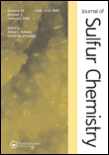
Journal of Sulfur Chemistry
Unveiling Innovations in Sulfur ResearchThe Journal of Sulfur Chemistry, published by Taylor & Francis Ltd, is a pivotal resource dedicated to the field of sulfur chemistry, offering a unique platform for researchers, professionals, and students alike to explore innovative discoveries and advancements. With an ISSN of 1741-5993 and an E-ISSN of 1741-6000, this journal has been a prominent contributor to the academic discourse since its inception in 2004, converging knowledge and research through the year 2024. Recognized in the 2023 Scopus rankings, it holds a strong position at Q3 in the category of miscellaneous chemistry, ranking #173 out of 408, within the 57th percentile, underscoring its role as a valuable asset in the chemistry community. Although the journal does not currently offer open access, it remains a vital source for novel insights and scholarly articles, significantly impacting ongoing research and education in sulfur chemistry.
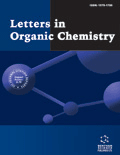
LETTERS IN ORGANIC CHEMISTRY
Fostering Dialogue for Future InnovationsLETTERS IN ORGANIC CHEMISTRY is a distinguished journal published by Bentham Science Publishers Ltd, focusing on the rapidly evolving field of organic chemistry. Established in 2005, the journal commits itself to disseminating vital research findings, reviews, and innovative methodologies that contribute to the understanding and advancement of organic chemistry and biochemistry. With an ISSN of 1570-1786 and an E-ISSN of 1875-6255, this journal enhances accessibility and visibility for authors and readers alike, albeit not adopting an open-access model. Positioned within Q4 quartile rankings for both Biochemistry and Organic Chemistry, it serves a niche audience keen on exploring emerging trends and breakthroughs in these disciplines. Its Scopus rankings further reflect its role in the global academic landscape, albeit at the beginning stages of its impact journey. Based in the United Arab Emirates, LETTERS IN ORGANIC CHEMISTRY is dedicated to fostering dialogue among researchers and practitioners, paving the way for future innovations in organic and biochemical sciences.
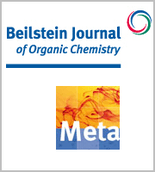
Beilstein Journal of Organic Chemistry
Fostering innovation through open access to organic chemistry.The Beilstein Journal of Organic Chemistry, published by the renowned BEILSTEIN-INSTITUT, stands as a pivotal platform for advancing the field of organic chemistry since its inception in 2005. With its commitment to Open Access publishing, this journal enables global readership and collaboration, fostering the dissemination of high-quality research. Operating from Germany, the journal has carved out a significant reputation, currently holding a Q2 ranking in the Organic Chemistry category, with impressive Scopus rankings placing it at #91 out of 211 in the field, achieving a 57th percentile. The Beilstein Journal is dedicated to publishing cutting-edge findings that span the breadth of organic chemistry, including synthetic methodologies, catalysis, and material sciences, making it an essential resource for researchers, professionals, and students looking to stay at the forefront of organic chemistry advancements. With a vision to enhance collaboration and knowledge sharing within the scientific community, the journal plays a vital role in shaping the future of organic chemistry research.
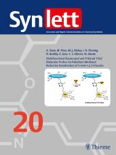
SYNLETT
Unveiling Breakthroughs in Organic Compound ResearchSYNLETT is a prominent academic journal dedicated to the field of Organic Chemistry, published by GEORG THIEME VERLAG KG. Since its inception in 1989, the journal has played a critical role in advancing the understanding of synthetic methodologies and organic compounds, offering a platform for innovative research and discoveries. With an ISSN of 0936-5214 and an E-ISSN of 1437-2096, SYNLETT is well-regarded in the academic community, presently positioned in the Q3 quartile for Organic Chemistry according to the 2023 category rankings. The journal is particularly valuable for researchers and professionals seeking insights into contemporary organic synthesis methods and their applications. Although it does not operate under an Open Access model, it remains a crucial resource within the field, contributing to significant advancements and collaborations globally. For those engaged in organic synthesis, SYNLETT not only encapsulates cutting-edge research but also inspires innovation in the discipline.

Asian Journal of Organic Chemistry
Advancing the frontiers of organic chemistry.Asian Journal of Organic Chemistry, published by WILEY-V C H VERLAG GMBH, stands as a pivotal platform in the realm of organic chemistry, catering to researchers and professionals eager to share their contributions to the field. With an ISSN of 2193-5807 and E-ISSN of 2193-5815, this journal spans a commendable convergence from 2012 to 2024, featuring a notable impact factor highlighted by its Q2 ranking in the 2023 Organic Chemistry category. Positioned at rank #94 out of 211 in Scopus, the journal emphasizes the importance of quality research and innovation in organic chemistry. The lack of open access enhances the journal's selectivity, ensuring only the most rigorous and impactful studies are published. Serving as a vital resource for scholars, students, and practitioners alike, the Asian Journal of Organic Chemistry fosters the dissemination of knowledge, advances academic dialogue, and reinforces the pivotal role of organic chemistry in scientific advancement.
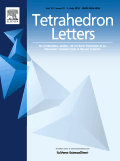
TETRAHEDRON LETTERS
Fostering Collaboration in the Chemical Sciences LandscapeTETRAHEDRON LETTERS, published by Pergamon-Elsevier Science Ltd, is a leading journal in the fields of Biochemistry, Drug Discovery, and Organic Chemistry, with a rich legacy since its inception in 1959. This prestigious journal serves as a vital resource for researchers and professionals dedicated to advancing the understanding of chemical sciences, featuring high-impact research that influences both academic and practical applications. Although it is currently classified in the third quartile across its categories for 2023, its rigorous peer-review process ensures the publication of quality research that contributes to the scientific community. With an ISSN of 0040-4039 and an E-ISSN of 1873-3581, TETRAHEDRON LETTERS is easily accessible for those in the academic landscape seeking to stay abreast of innovative developments. Researchers, professionals, and students alike will find invaluable insights and collaborative opportunities within the pages of TETRAHEDRON LETTERS, making it an essential read for anyone involved in the chemical sciences.
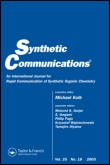
SYNTHETIC COMMUNICATIONS
Exploring New Frontiers in Synthetic ReactionsSynthetic Communications, published by Taylor & Francis Inc, stands as a pivotal resource in the field of organic chemistry since its inception in 1971. With an ISSN of 0039-7911 and an E-ISSN of 1532-2432, this journal has established a commendable reputation, holding a Q3 ranking in organic chemistry by 2023, reflecting its contributions to the discipline and positioning it within the 50th percentile according to Scopus rankings. Targeted towards researchers, professionals, and students alike, Synthetic Communications aims to disseminate significant advancements in synthetic methodologies and reactions, facilitating the exchange of innovative ideas and enhancing collaborative efforts in the scientific community. Although not an open-access journal, it offers a wealth of valuable research content that is crucial for anyone dedicated to pushing the boundaries of organic chemistry.
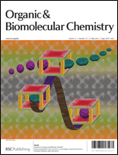
ORGANIC & BIOMOLECULAR CHEMISTRY
Exploring innovative pathways in chemistry research.ORGANIC & BIOMOLECULAR CHEMISTRY is a prestigious academic journal published by the Royal Society of Chemistry, dedicated to advancing the fields of organic and biomolecular chemistry. With its ISSN of 1477-0520 and E-ISSN of 1477-0539, this journal plays a pivotal role in disseminating high-quality research and contributing to the scientific community, particularly in biochemistry, organic chemistry, and physical and theoretical chemistry. Currently ranked in the third quartile for Biochemistry and the second quartile for Organic Chemistry and Physical and Theoretical Chemistry, it caters to a diverse audience of researchers, professionals, and students who seek insightful studies and reviews. With a publication history spanning since 2003 and ongoing till 2024, the journal fosters open access to its articles, encouraging the free exchange of knowledge. Situated in the vibrant academic environment of Cambridge, UK, ORGANIC & BIOMOLECULAR CHEMISTRY serves as a vital resource for innovative research at the intersection of chemical sciences.
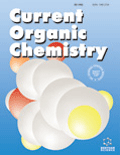
CURRENT ORGANIC CHEMISTRY
Innovating Insights in Organic Chemistry ResearchCURRENT ORGANIC CHEMISTRY, published by Bentham Science Publishers, stands as a pivotal platform in the field of organic chemistry, providing innovative insights and advancements since its inception in 1997. With an ISSN of 1385-2728 and an E-ISSN of 1875-5348, this esteemed journal has carved a niche in the academic landscape, currently ranking in the Q3 category for Organic Chemistry according to the 2023 metrics. Operating from the United Arab Emirates, it engages a diverse audience of researchers, professionals, and students by delivering quality peer-reviewed articles that cover a broad spectrum of organic chemistry research. Although the journal does not offer open access, it remains a respected source of knowledge, indexed in Scopus with a percentile ranking of 43, encouraging rigorous discourse and the dissemination of cutting-edge findings. With continuous publication through 2024, CURRENT ORGANIC CHEMISTRY is dedicated to advancing the frontiers of organic chemistry research and technology.

ORGANIC SYNTHESES
Unveiling Innovations in Organic ChemistryORGANIC SYNTHESES is a prestigious journal dedicated to the field of organic chemistry, published by ORGANIC SYNTHESES INC. Since its inception in 1946, the journal has served as a vital platform for researchers, educators, and practitioners in chemistry, showcasing significant findings and methodologies that advance the discipline. Although it currently does not offer open access, it is recognized for its rigorous peer-review process and its contribution to standardizing organic synthesis methods. With an ISSN of 0078-6209 and an E-ISSN of 2333-3553, the journal's impact reflects its quality, with a current Scopus ranking placing it in the fourth quartile in both Organic Chemistry and Physical and Theoretical Chemistry. This positioning underscores its critical role in fostering knowledge and innovation within these fields. Researchers and students alike will find ORGANIC SYNTHESES an essential resource for staying informed on contemporary practices and discoveries in organic synthesis.